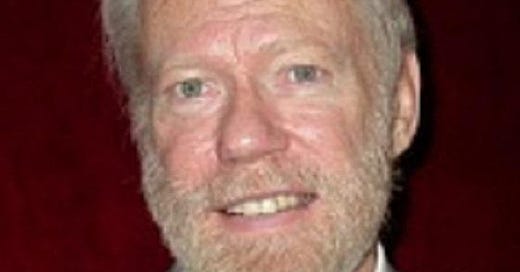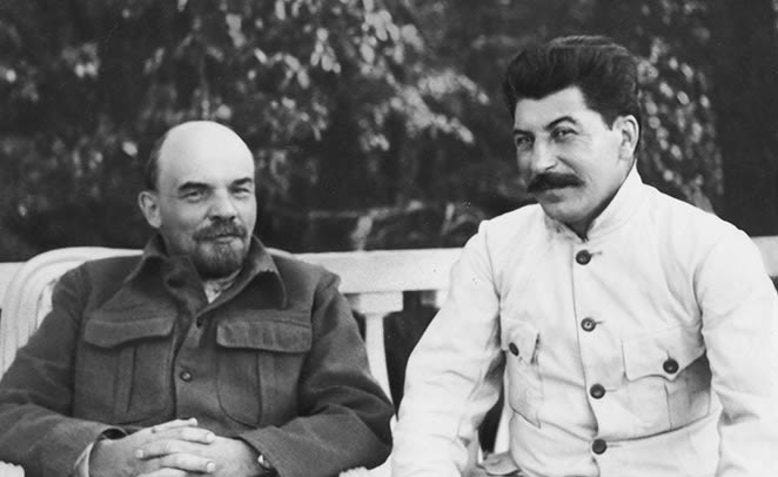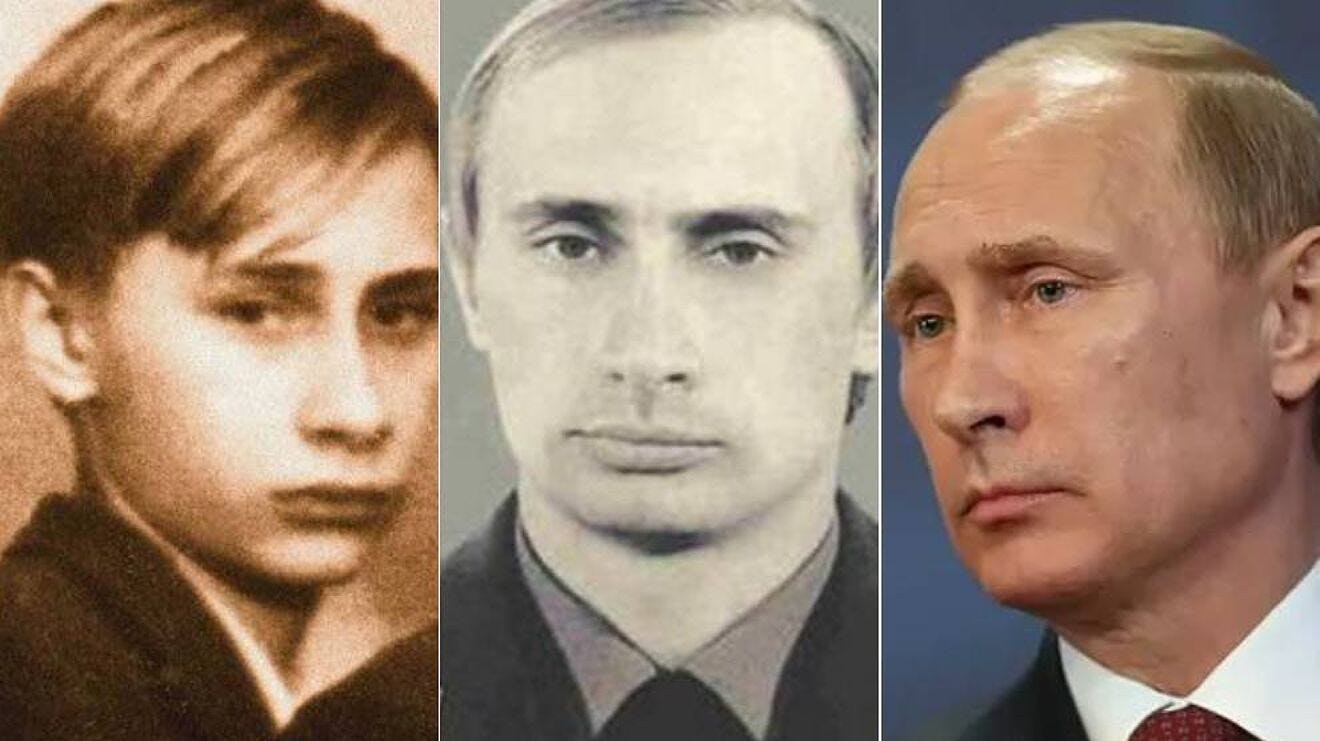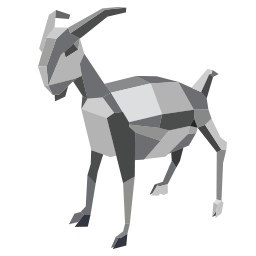Ruminating with ROBERT LEGVOLD
About Putin's invasion of Ukraine and how the new Cold War actually started in 2014
I met Robert Legvold through my friend, Derek Shearer, the former U.S. ambassador to Finland under Bill Clinton, who knows practically everyone. With the 2007 death of his mentor, Marshall Shulman, also a professor at Columbia, Legvold became arguably the dean of American Russia experts. He was born in Minnesota and educated at the University of South Dakota and the Fletcher School of Diplomacy at Tufts. I’ve read his articles in Foreign Affairs for years and wanted his historical take on Vladimir Putin and the Ukraine War.
JONATHAN ALTER:
How did a kid at the University of South Dakota end up in your line of work?
ROBERT LEGVOLD:
It was fairly simple at that point. If you were interested in international affairs, then the central issue for US foreign policy was the U.S.-Soviet relationship. Had I been an undergraduate over the last ten years, I undoubtedly would have been a China specialist. My ancestral background is Norwegian. My parents had no profession that had anything to do with foreign affairs, let alone with the U.S.-Soviet relationship at the time. So it was an intellectual interest. I was in high school during the 1956 Hungarian uprising [crushed by the Soviet Union] and was a first-year graduate student with a wife and a two-year-old daughter in October, 1962 [the Cuban Missile Crisis]. By then I had already committed myself to the field and begun studying [at Fletcher under Marshall Shulman], who went into the Truman and later the Carter administrations and as part of key Track II exercises would help both sides to better understand one another.
JON:
So how do you fit Ukraine into Hungary (1956), Czechoslovakia (1968) and Afghanistan (1980) in terms of Russian ambitions and the way they handled those decisions to move in?
ROBERT LEGVOLD:
Ukraine is fundamentally different. In the case of Hungary and Czechoslovakia, and 1980 in Poland, Soviet leaders were basically trying to hold together an empire. They were essentially acting aggressively for strategically defensive purposes. In the case of Ukraine, Putin might argue that ‘Yes, it’s defensive. We're trying to prevent Ukraine from being being absorbed into NATO and lost to the West.” But when you look at his ultimate rationale for it, including his take on history, it's basically a notion that Ukraine doesn't have a right to exist as such. It's really a part of Russia, and he's correcting what has been a historical aberration. And that's a very offensive objective, even if it's phrased in the context of national security, and Ukraine's drift toward the West, and maybe absorption into an anti-Russian Alliance like NATO.
“But when you look at his ultimate rationale for it, including his take on history, it's basically a notion that Ukraine doesn't have a right to exist as such. It's really a part of Russia, and he's correcting what has been a historical aberration.”
Now the Cuban Missile Crisis has some parallel because Khrushchev—like Putin— was attempting to shift the balance of power—in Khrushchev’s case, at the nuclear level—in Russia's favor. I always saw that as the last of the Berlin crises—the crises from 1958 to 1961, where Russia was trying to force the acceptance of a divided Germany as the core of a divided Europe. That had an offensive quality.
JON:
I’ve always thought John F. Kennedy should be considered one of our greatest presidents because of what he did—and didn’t do—in the Cuban Missile Crisis. This young 45-year-old president was being told by all the experienced wise men—like Senators William Fulbright and Richard Russell—to opt for air strikes against Cuba. He chose a naval blockade instead. We found out years later that if JFK had bombed Cuba, we might have had a nuclear exchange.
ROBERT LEGVOLD
Yes, and it's even more harrowing. We did not know then the number of nuclear weapons that were already in Cuba. About 40 hours before the ultimate critical decision on [Soviet premier Nikita] Khrushchev’s part to back away, they had moved their tactical nuclear warheads from storage to delivery vehicles in anticipation of a U.S. invasion. So the stuff that we worried that they were going to put in place was already there. And that’s not even mentioning the Soviet submarine [that was out of communication and almost accidentally launched a nuclear missile].
JON:
Am I right that in Putin's mind, the original sin here was Lenin and Stalin’s decision in 1922 to make Ukraine a Soviet Socialist Republic rather than part of Russia?
ROBERT LEGVOLD:
Yes. He's been very critical of Lenin and the Bolsheviks. Three days before [the invasion], in a speech reviewing Soviet history, he said they made a fundamental mistake by dismembering Imperial Russia. But I don't think that's the way he thought about the problem of Ukraine when he came to power in 1999. One of the difficulties that we're having is understanding how much of the Putin that we see today is the Putin who has always been there and is simply revealing himself in the context of the Ukrainian crisis, and how much this is a Putin who has evolved since he came to power in 1999.
JON:
What’s your take?
ROBERT LEGVOLD:
I think it's an issue of evolution. The Putin that we see today is very different from the Putin of even five years ago, but certainly ten years ago. The fragments of personality and outlook were there right from the beginning. This prickly pugilistic personality was seen —by his own account— even as a seven year old. And then you add to that the KGB experience in Dresden. He was certainly marinated in the notion that the West is not Russia's friend. He never bought NATO expansion as benign. But in the early years of his presidency he remained conflicted as late as 2004-2005, a critical turning point. The year 2004 marked the ultimate phase in the color revolutions, including in Ukraine. By that time and as a result of these events, he had begun to convince himself that the U.S. was committed to regime change. He had seen that unfolding in the case of Iraq, and would later in Libya and then Syria and, in his mind, now Ukraine as preliminary to regime change in Russia.
But in the same 2004-2005 period, there were indications pointing in the other direction. In April in a much quoted speech to the upper chamber of the [Russian] parliament, he lamented the collapse of the Soviet Union as “the greatest geopolitical tragedy of the 20th century.” But a month later he did an interview with the main German television network in which he said anyone who doesn’t regret the collapse of the Soviet Union has no heart, but that anybody who believes that it can be reconstituted has no brain. These days the second comment is not much quoted. I think he was conflicted at that stage. In his early speeches, he spoke about Russia as part of Western culture and European traditions, and he even played with the idea — I don’t know whether he was serious—that Russia ought to seek membership in NATO. By 2007, however, his views had largely hardened, and in his speech at the Munich Security Conference in February he unloaded on the United States for its unilateralism, resort to military force and strategy of regime change.
Thus, he has believed for some time that the primary purpose of US foreign policy with respect to Russia is regime change. He's got close advisors, like Nikolai Patrushev, the head of their national security council, who for all of his productive meetings with American officials has believed as far back as the Carter Administration that the United States is not only determined to suppress Russia, roll it back, prevent it from achieving any of its goals and put it under the thumb of the United States. But he has also argued that the United States’ commitment to regime change is a little like what the Russians thought we were up to in Iraq—to seize its oil, in Russia’s case, it’s natural resource riches.
JON:
So when Biden said that Putin shouldn't remain in power, they would just see that as a confirmation.
ROBERT LEGVOLD:
He didn't need to hear that, and certainly does not believe Biden’s denial that he favors regime change. He had already made up his mind years earlier that this was what the U.S. was after, that sanctions in 2015 were not merely to deter Russia or shape its foreign policy, but were intended to bring his regime down.
I wrote a book in 2016 entitled Return to Cold War, that argued that with the 2014 Ukrainian crisis the two countries had slid off the rails, and entered a new cold war, different in essential respects from the original Cold War, but that shared with it critical characteristics during the earlier cold war’s harshest phases. Before that, in the years following the collapse of the Soviet Union, the relationship resembled a downward sloping sine curve with the ups and downs from the early years of hope, to the deterioration with NATO enlargement, rebuilt afterward, only to descend again in the 1999 Kosovo war, followed by progress in the early years of the George W. Bush administration, partially reversed during the 2003 Iraq war and more fully as a result of the 2008 Georgian war, and a final thrust upward with the Obama administration’s pursuit of what was called “the reset.” In 2014 the curve fell off the graph. In short, until then, we were doing the dance together. Who was leading the dance and who was following depended on the period of time you're looking at.
But the Putin we see today is very different. Today he’s a monster whose views are distorted and perverted by the misinformation he receives from the narrow circle surrounding him. When combined with a megalomania that has slowly built over the years, he had reached a point where he had convinced himself that he could and must upend history with the decision he took on February 24.
“But the Putin we see today is a very different Putin from even five years ago. Today he’s a monster whose views are distorted and perverted by the misinformation he receives from the narrow circle surrounding him. “
JON:
I used to be opposed to NATO expansion but now I think I was totally wrong and if it weren’t for NATO expansion, Putin would be in the Baltics by now.
ROBERT LEGVOLD:
You could argue you were right in the first instance because the question of Ukrainian neutrality would not have emerged without NATO expansion. At the time that decision created some odd bedfellows. Paul Nitze [hawk] and George Kennan [dove] were both against it. Kennan predicted the long-term consequences, which Tom Friedman recently revisited.
There were sins of omission as well as commission. For their part, the Russians failed to use that period to reassure their neighbors or do anything to reduce their determination to be part of NATO.
I think Kennan was probably right. Had we not enlarged NATO, there might have been a chance that we would have seen a different Russia had our leaders and theirs worked harder at making Russia’s integration with the West, if not quite into the West, more attractive, more feasible and more urgent. Instead the two sides allowed malignant seeds that were present from the beginning to linger and then grow larger at each stage of deteriorating relations. So the story is not simply the question of NATO enlargement but the things that were done subsequently and the failure to recognize how NATO enlargement resonated through them. For example, I think we did not quite understand why the 1999 Kosovo war was so negative and so disruptive in the relationship. We failed to see how profoundly NATO’s military intervention forcing the Russian-backed [Serbian] army to retreat from the war in Kosovo influenced the Russian view of the threat NATO could pose to Russia. We treated Kosovo as sui generis and only in its local context rather than the way it echoed in Moscow and then figured directly in Russian military planning.
Who knows whether—if we had not enlarged NATO— Russia really would have turned out to be a more constructive player, or whether internal dynamics would still have led to the kind of behavior which is intimidating to its neighbors and has led us to where we are now. I don't know how to answer that counterfactual. But I do believe there are lessons if we try to understand how we got here. It was a failure on both sides to recognize how many things they were taking for granted, how many problems they were ignoring or underestimating, how many opportunities they did not take the time to explore. Neither government addressed with sufficient energy and concern the difficult challenge of putting the relationship on a sound and more durable basis.
“Who knows whether—if we had not enlarged NATO— Russia really would have turned out to be a more constructive player, or whether internal dynamics would still have led to the kind of behavior which is intimidating to its neighbors and has led us to where we are now.”
That happened for two reasons. [In pivoting to China], we had decided that the U.S.-Russia relationship was not so central that the troubles that we were under-estimating needed to be dealt with in a serious fashion. And until 2014, we assumed that we would come out of each of these [rough patch] periods and move forward. It drives me crazy when journalists ask—even now— whether we are headed for a new Cold War. That new Cold War began in 2014 [The year Russia annexed Crimea]. That’s when the sine graph ends and— to mix my metaphors again— the relationship goes off the rails.
JON:
Something obvious struck me recently: Gorbachev or another leader without Putin’s blood lust would never have done any of this. This war seems to me to confirm that particular leaders—not abstract social forces— change history, though of course it’s the interaction of the two that matters.
ROBERT LEGVOLD:
Who would deny that the Lenins, the Bonapartes and the Hitlers are critical to the way history unfolds? I would certainly put Putin in that category. He is critical to the story and the horror that we're now witnessing. All of these men self-appointed themselves to the pantheon of historic leaders, who saw or see themselves as infused with the history of their countries and transforming it. The case of Lenin was a little different. He was not so much transforming the history of his country as altering world history according to the ideology he espoused. But each of these people— whether it's Bonaparte in post-1793 France or Hitler in the throes of a troubled Weimar— were made bold by the historical context in which they lived. With Putin there too is this interaction between his person and the historical context shaped over the years since the collapse of the Soviet Union.
JON:
What happened to Putin during Covid? He seemed to get more isolated.
ROBERT LEGVOLD:
According to U.S. intellgence sources, over the years, particularly since the start of the Ukrainian crisis in 2014, he became excessively dependent on what are called “red dossiers”—intelligence reports that doubtlessly have a particular slant. In addition close advisors likely have been giving him information that they believe he wants to hear. He, from all appearances, has been badly misled, perhaps in ways that he subconsciously wanted to be. In this climate there are also those, including one or two of his closest confidants, who have encouraged his crudest thinking, such as his more recent denegration of Ukrainian history, denial of Ukaine’s legitimate statehood, and, for some of these people at its crudest, the leadership of Ukraine and those who follow as Untermensche, as inferior people, even sub-human.
JON:
How bad is it going to get?
ROBERT LEGVOLD:
This emerging battle focused on the Donetsk and Luhansk oblasts and the Azov Sea land corridor to Crimea, I believe, will be like nothing we have seen since World War II.
Putin might be most dangerous [in terms of tactical nuclear weapons] if he loses this battle, or can claim nothing that looks like a victory. He has already lost in the larger sense extending far beyond the war in Ukraine. When you start tallying the overall failure in terms of what were the concerns and apparent aims of Russian foreign policy and the price he is and will pay at home, it's more comprehensive than the failure of any leader that I can think of in the last 100 years. Other than Hitler, who lost his war. And the effect on Russia itself is devastating. As one example in the sea of misery coming Russia’s way, already nearly 500,000 Russians, many young, talented, and IT-skilled, have fled, and inside experts say that number may climb to one million. The damage he's done to his own people, not merely as a consequence of the sanctions, is immense.
When I reviewed books on Russia for Foreign Affairs, I included at least 30 of more than 50 on Putin. The one that gave me the greatest insight into this man was Mr. Putin: Operative in the Kremlin by Fiona Hill and Clifford G. Gaddy.
JON:
Thanks, Robert.








Let's face it - the most effective prophylactic against autocrats like Hitler, Putin, and Trump is vigorous democracy. And now is the time to rally to the banner.
Thanks Jon and Robert- this was very enlightening. What a horror for all involved.